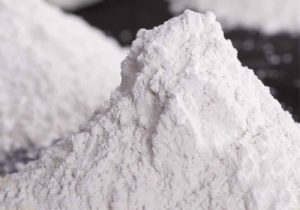
CP-992 Organophilic clay
CP-992 Organophilic Clay, the wet process improved viscosifier and gelling agent . It is a rapidly dispersing.
Bentonite for drilling : CP-982,CP-992,CP-150 ,They are all specialized rheological additives for oil fields.They possess the characteristics of easy to disperse and rheological stability.The configured drilling fluid can exhibit extremely strong performance stability at temperatures below 200 ℃.
Therefore, it is very suitable for diesel engine drilling fluids, white oil based drilling fluids, synthetic oil drilling fluids, as well as water in oil drilling fluids and well protection completion fluids.
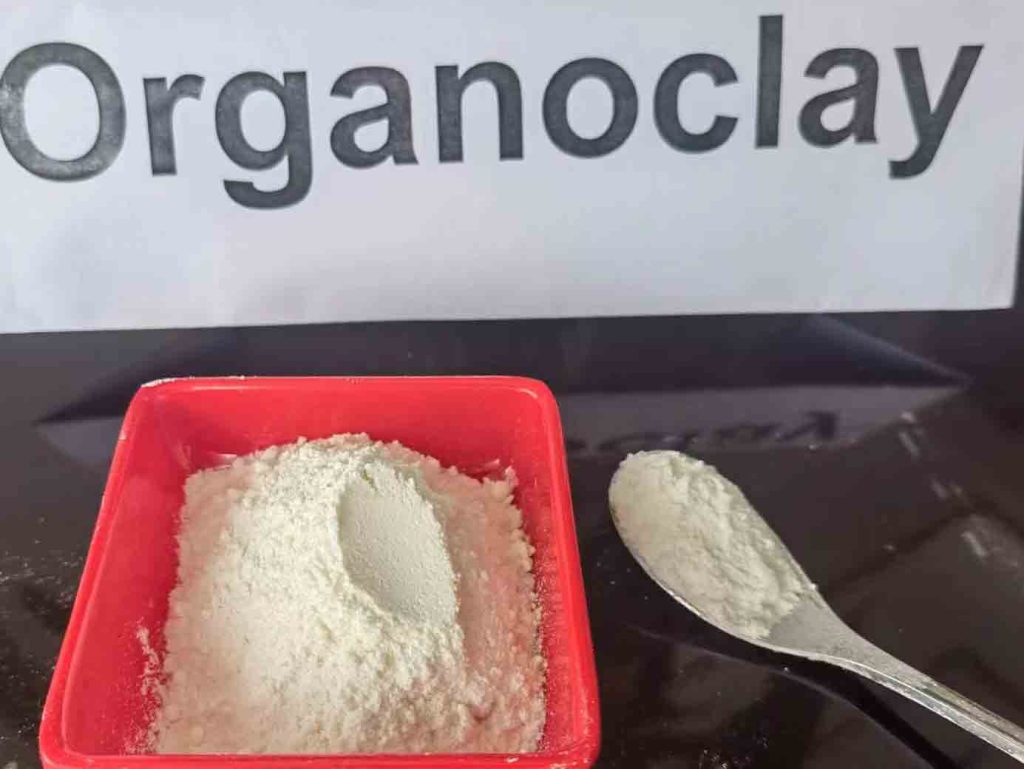
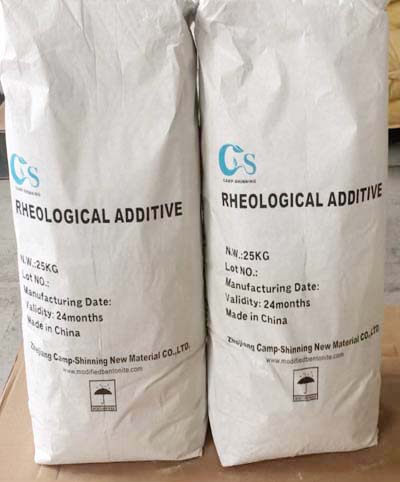
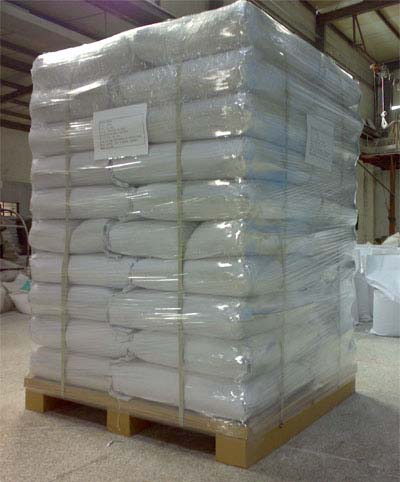
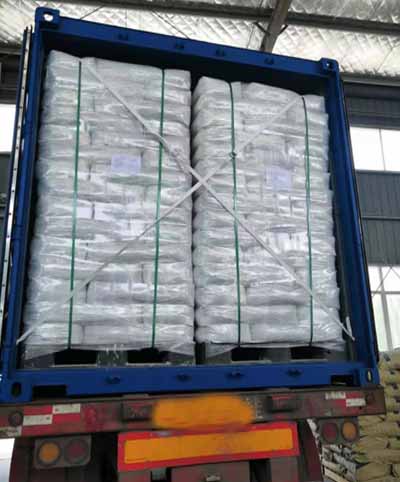
Bentonite for drilling:Looking for a superior viscosifier and gelling agent? Our organoclay Bentonite clay providers provide an organoclay that is simple to disperse, yields quickly, and has a high performance efficiency. It is stable and possesses excellent suspension and thixotropic properties. This product is com

CP-992 Organophilic Clay, the wet process improved viscosifier and gelling agent . It is a rapidly dispersing.

CP-982 Organophilic Clay is an amine treated bentonite with a moderate temperature performance.

CP-150 Organophilic Clay is a self-activating organoclay that disperses easily and performs well in diesel, low aromatic mineral oil, modified vegetable oil, and synthetic base fluid formulations.


CP-10 organoclay is a rheological additive made of organoclay. It is used in non-polar to moderately polar aliphatic and other solvent systems

CP-MPZ organoclays is an modified bentonite that is used in solvent and resin systems ranging from non-polar to highly polar.

The CP-MPS rheology modifier is a type of organo clay rheological additive that is used in solvent and resin systems ranging from non-polar to high polarity.
Organoclay Supplier / Manufacturer :
Internet address: https://www.rheologymodifiers.com/
Email address: [email protected]
Whatsapp / Wechat: +86-13185071071
Organophilic Clay Supplier / Manufacturer :

CP-EW Organoclay for Water Based paint. It is primarily employed in water borne paint systems,such as latex paint. So it is a good water based additive in paints,coatings,grease etc.

CP-EWS Modified bentonite It is employed in a water-borne coatings system. CP-EWS organoclay outperforms CP-EW in terms of thixotropy, transparence, and dispersion.

CP-WBS Rheology Modifier is rheological modified bentonite. It is mostly employed in water-borne systems.


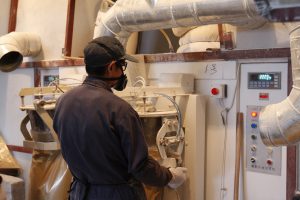
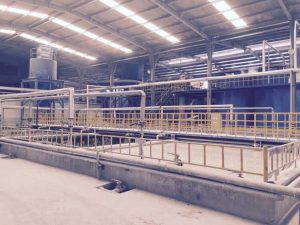


The Organoclay bentonite | Organophilic clay -specialized Zhejiang Camp-Shinning New Material CO.,LTD. and Hangzhou Camp-Shinning CO.,LTD. are subsidiaries of Camp-Shinning.
Camp-shinning concentrated on high value-added, high-technology organo bentonite series products, particularly in research, development, manufacturing, and sales of organic (solvent based organoclay) and inorganic bentonite (water based organoclay).
Our Organophilic bentonite clay finds widespread application in oil drilling mud, paint, coating, lubricating grease, adhesive, construction mortar, cosmetics, and waste water treatment, among other applications. A group of world-class professional users and distributors, such as SUN CHEMICAL,,SIEGWERK,LEHMANN &VOsS, and others, have acknowledged our dependable quality.
Current annual production of organic bentonite clay | organoclay is 20,000 metric tons, while refined bentonite production is 15,000 metric tons.
Our ISO 9001 quality system certification and IS014001 environmental management system certification, as well as our own mine with superior ore quality and production of proprietary technology, ensure the long-term quality and supply stability of our Organoclay bentonite | Organophilic clay.
Our mission is to provide users with superior Organoclay bentonite | Organophilic clay and services and to collaborate with them to achieve success and glory.
Internet address: https://www.rheologymodifiers.com/ and email address: [email protected]
Whatsapp / Wechat: +86-13185071071
Organoclay | Organophilic Clay CP-2 also named amine treated Bentonite.
In diesel oil based fluids,organophilic clay viscosifier CP-2 are used to increase carrying capacity and suspension properties, providing support for weight materials and improved cutting removal. Organophilic bentonite also aids in filter-cake formation and filtration control.
Properties
Composition Organically modified bentonite clay
Physical appearance Off white to tan free-flowing powder
Moisture content (105℃,2hr) ≤4%
Particle size (<76μm or 200mesh) ≥95%
Specific Gravity 1.6-1.8
Advantages
Effective viscosifier and gellant
Aids control of fluid loss to the formation
Increases emulsion stability
Improves cuttings carrying and hole cleaning capacity
Suspends weighting materials and other solids
Confers temperature stability to the fluid
Application
Base oil:
Diesel Oils
Crude Oils
Mineral Oils
Synthetic Oil
Viscosifying drilling Fluids:
Oil based drilling fluids
Invert emulsion fluids
Workover fluids
Completion fluids
Casing packs
Packer fluids
Spotting fluids
Package
Organoclay | Organophilic Clay CP-2 is packed in 50lb(22.7kg) or 25kg/bag or customized,multi-wall paper sacks or Kraft paper bag with PE liner or customized.
Storage
CP-2 Store in a dry, well-ventilated area with temperature of 0℃-30℃. Keep container closed. The quality guarantee period is 24 months.
Notice
The information on use is based on data which are believed reliable, but any recommendation or suggestion made is without guarantee or warranty, since the conditions of use are outside our control. All products are sold on the conditions that purchasers shall make their own tests to determine the suitability of such products for their purpose and that all risks are assumed by user. We disclaim any responsibility for damages resulting from careless or improper handling or use. Nothing herein is to be taken as permission, inducement or recommendation to practice any patented invention without a license.
Internet address: https://www.rheologicaladditive.com/ and email address: [email protected]
Whatsapp / Wechat: +86-13185071071
Bentonite for drilling Bentonite organoclay is a versatile component of drilling fluids. It is useful for a range of applications, including latex stabilization, due to its unique characteristics. In addition, it is utilized in coatings, paints, and adhesives. It is widely used in high-temperature grease. Bentonite for drilling The addition of organophilic clay to drilling muds raises their yield stress and improves their stability below and above the critical dose. Through the creation of three-dimensional networks of flocculated particles in the exterior phase, greater stability is achieved. The increase in particle quantity enhances their cohesive force and shear rate, resulting in enhanced drilling performance. Organophilic clay was added to gasoil-based drilling muds in a study. This addition boosted the drilling muds’ stability by approximately 70%. Additionally, the addition of this clay to the muds enhanced yield stress, viscoelasticity, and thixotropic characteristics. Organophilic clays contain the excellent rheological agent smectite. It is a substance that can improve the suspension and gelling properties of drilling muds at a reasonable price. It is simple to measure its viscosity and powder viscosity with a fann viscosimeter. Organophilic clays display considerable adsorption of dissolved heavy metals and organic molecules, in addition to their thixotropic and rheological characteristics. It also minimizes the toxicity of drilling mud. It has a variety of uses, including the drilling of productive horizons, the cleanup of oil wells, and the drilling of unconventional wells. Organophilic clay is utilized as a non-toxic, thermally stable viscosifier in a range of water-based drilling fluids. It can withstand temperatures up to 400 degrees Fahrenheit without degrading. It is also compatible with systems including seawater and KCl. It can improve the performance of drilling fluids and lower drilling fluid expenditures. Bentonite for drilling Organophilic clay is a form of clay that has been chemically treated to make it more water-dispersible. This characteristic makes it easier to drill through rocks and other hard surfaces. It also protects drilling equipment from corrosion. By adding clay to drilling mud, it is possible to increase the efficiency of a well and maintain its equipment. Organophilic Clay is a superior viscosifier and gelling agent with excellent suspension and thixotropic qualities. It is a substance used in the formulation of base fluids that is economical. In addition, it offers high-performance characteristics in formulations for drilling fluids and boosts the fluids’ carrying capacity. Organophilic clays can improve the viscosity of drilling fluids, but they lack the viscosity of water-based drilling fluids. This is owing to particles’ weak electrical interactions. There is widespread use of organophilic clays in drilling fluids. They are susceptible to stratification, though, under specific conditions. In addition, they have extremely high equivalent circulating densities and low chemical reaction rates. In addition, they have temperature restrictions. They lose their viscosity and thermally disintegrate at high temperatures. At low temperatures, their viscosity is maintained. Organoclay is a naturally occurring clay mineral formed via an organic process. Its lamellar structure is identical to that of the parent phyllosilicate, but it contains organic moieties that are covalently bonded. It is a great viscosifier for oil-based drilling fluids due to this distinctive feature. The price per kilogram of the general solvent organoclay bentonite ranges between $1.70 and $3.20. Prices vary based on the product’s purity and processing method. Nonetheless, a dependable provider can make all the difference in this extremely competitive market. rheological additive The use of organophilic clay into drilling muds enhances their thixotropy. This addition improves filtration control and filtercake formation. In addition, it is an efficient viscosifier in certain applications. Using a rheological additive in drilling fluids requires sufficient shear and effective agitation. Organoclay is an organophilic clay known to improve the stability of drilling muds above and below their critical dose. It increases the stability of mud by generating a three-dimensional network of flocculated particles around the droplets in the exterior phase. These particles are responsible for the drilling fluid’s enhanced stability. The clay that is organophilic is a white powder. Its composition is determined by the bentonite ore from which it is derived. It is available in numerous purity and processing grades. The cost of drilling organoclay bentonite is dependent upon its purity and method of processing. Bentonite is a versatile mineral utilized in the oil and gas sector for organoclay drilling. It has multiple applications, including drilling for minerals, removing grease and oil, serving as a filtration medium, and treating water. In addition to its function in drilling, it is an excellent lubricant. Rheological additive : Bentonite for drilling Organophilic bentonite clay is a thermally stable rheological additive with several advantages over other substances. Its features include thickening, thixotropy, and suspension stability, and it is highly effective at preventing the collapse of drill bits. In addition, it is a superb lubricant and forms a film in a variety of organic solvents. It is often used as a paint coating and oil drilling fluid.
Organoclay Supplier / Manufacturer :
Internet address: https://www.rheologymodifiers.com/
Email address: [email protected]
Whatsapp / Wechat: +86-13185071071
Organophilic Clay Supplier / Manufacturer :

CP-180 organoclay is an organo clay rheological additive (modified montmorillonite) designed specifically for use in solvent-based systems

CP-34 organoclay is a modified bentonite that has been specifically designed for use in solvent-based systems.

CP-EDS modified bentonite is a kind of organo clay rheological additive. It is used in systems of medium polarity and high polarity system.
I. Composition : Bentonite for drilling
Organo clay Bentonite is a modified bentonite clay. It’s formed by the weathering and deposition of silicate minerals (such as feldspar) in magmatic rocks or metamorphic rocks, and its composition is
1, clay minerals: montmorillonite, kaolinite, illite and seafoam, the main clay minerals of bentonite for drilling are montmorillonite, the content is more than 70%.
2, sand: gypsum, quartz, feldspar, mica, iron oxide, etc. The smaller the content, the better.
3, staining matter: wood chips, leaves and decaying matter play a staining role, bentonite has red, yellow, purple and other different colors, that is the reason.
4, soluble salts: carbonates, sulfates and chlorides, etc.
Second, classification
Bentonite is divided into calcium-based bentonite sodium-based bentonite and modified bentonite three.
1, calcium-based bentonite: slurry rate of 8-12 cubic meters per ton.
2, sodium-based bentonite: slurry rate of 15-18 cubic meters per ton.
3, modified bentonite: by adding soda ash, caustic soda, carboxymethyl cellulose, low molecular weight polyacrylamide and other inorganic salts and organic dispersants to improve the slurry rate of bentonite, to achieve sodium-based bentonite performance indicators.
At present, the modified bentonite we provide can be used for different base oils in oilfield drilling. Whether your base oil is diesel mineral oil or synthetic oil, we have corresponding modified bentonite, which can be used in your formula to achieve its suspension performance efficiently.
Third, the role and use
1, plugging: loess layer leakage, bedrock fracture leakage are needed to match the slurry plugging.
2, wall protection: the formation of mud cake on the well wall, to reduce the penetration of water in the drilling fluid to the well wall, play a role in protecting the stability of the well wall.
3、Carry sand: prepare a certain amount of high specific gravity viscosity bentonite mud into the well periodically, the well will fall block, rock chips smoothly carried out of the well, keep the well clean.
4, with collapse mud: well wall collapse after a long period of immersion, conventional mud still can not maintain the well wall, we must add bentonite to improve the specific gravity, cutting force, viscosity to achieve the purpose of stabilizing the well wall.
5, with weighted mud: when encountering water or high-pressure oil and gas layer, are required to add bentonite in the mud to balance the formation pressure.
6, with completion fluid and closure slurry: for the smooth logging, completion of drilling with completion fluid; in the collapse-prone section of the well with closure slurry, these are required to add bentonite.
Fourth, the factors affecting the performance of bentonite
1, the quality of the original ore: the original ore montmorillonite content is the most important factor affecting the performance of bentonite, the higher the montmorillonite content, bentonite slurry rate is correspondingly high.
2, particle size: the finer the particle size, the higher the slurry rate, and vice versa.
3, additives: the reasonable addition of dispersants, will significantly improve the performance of bentonite.
4, water quality: bentonite in high mineralization and acidic water slurry rate will be significantly reduced or even no slurry.
V. Simple test
1, the slurry rate: 1 ton of bentonite to prepare the volume of the slurry with a colloid rate of 95% or more. Such as slurry rate of 15 cubic meters per ton, is in 100 grams of water with 6.67 grams of bentonite stirred for 30 minutes and poured into a test tube (100 ml), 24 hours colloid rate of 95% or more.
2, funnel viscosity: the viscosity is measured with a marsupial funnel, generally not less than 28 seconds.
3, water loss: use ANS air pressure water loss meter to measure the water loss. Generally not more than
18ml/30min.
4, sand content: add 100g bentonite to 1000g water and stir for 30 minutes, then add 1000g water and stir for 30 minutes and rest for 30 minutes. The sediment above the mud all poured out, and then washed twice with water, the last sand drying, weighing its weight, that is, the bentonite sand content, sand content of less than 5% for qualified products.